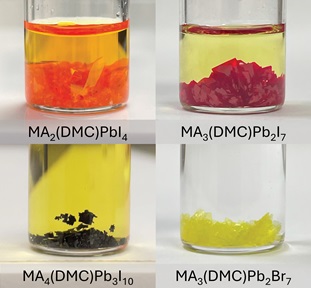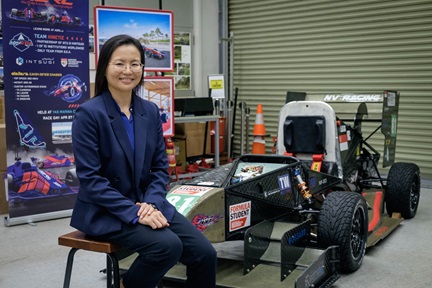Arm rehabilitation robot ‘H-Man’ bags National Healthcare Group Research and Innovation Award
H-Man, a portable arm rehabilitation robot designed to help stroke patients regain upper limb mobility, has won a National Healthcare Group (NHG) Research and Innovation Award.

A portable arm rehabilitation robot developed by NTU scientists, in collaboration with rehabilitation physicians and occupational therapists, has clinched a National Healthcare Group (NHG) Research and Innovation Award 2021, in the Healthcare Innovation category.
The award recognises individuals and teams who have made outstanding contributions to improve health outcomes or delivery, as well as promote the spirit of continuous research and innovation in NHG.
Unlike most rehabilitation robots, which can weigh up to 70 kilograms and require special reinforced housing, the compact device, called H-Man weighs 14 kilograms and can be placed on a normal table. It is easy to operate and set-up, ensuring that therapists and patients have more quality time to engage in rehabilitation exercises.
Consisting of a control handle and a large interactive display, H-Man helps patients with stroke and other neurological conditions improve their upper limb mobility by playing immersive exercise games designed for rehabilitation on the screen. The robot then evaluates their progress and sends feedback to therapists.

Playing exercise games on H-Man is a fun way for patients to train their arms.
Developed over eight years by scientists from NTU’s Robotics Research Centre (RRC) in collaboration with rehabilitation physicians and occupational therapists from the Centre for Advanced Rehabilitation Therapeutics (CART) at Tan Tock Seng Hospital (TTSH) Rehabilitation Centre, the technology has been commercialised and spun off into ARTICARES, which was incubated by NTUitve, NTU’s enterprise and innovation company, after the successful completion of the clinical trials.
Leader of the NTU research team, Associate Professor Domenico Campolo, co-founder of ARTICARES, said their initial aim was to develop an affordable and portable robot that post-stroke patients could use for rehabilitation therapy at home or in community-based settings at their own pace with minimal supervision, as a complement to conventional therapy.
“With an ageing population in Singapore, we can expect to see more elderly people with upper-limb movements affected by stroke or other injuries,” said Assoc Prof Campolo, who is the Director of the NTU Robotics Research Centre. “Our smart robot is designed to allow patients to practise in the comfort of their own home with minimal help from therapists. It also improves the reach of rehabilitation physicians and occupational therapists, as they can supervise more patients this way than through one-to-one visits at the hospital.”
Video games that help patients improve upper limb mobility
The interactive games on H-Man that range from users exploring the world, flying drones, matching hidden objects and fishing, are designed to engage patients and encourage them to practise a variety of arm movements. A cloud-based wireless telecommunication platform called CARE controls the games and programming on H-Man.
Through active participation, continuous feedback and variations in each movement provided by the artificial intelligence driven algorithm, patients are motivated to perform these exercises which train abilities such as coordination, strength, agility and memory. This creates an enjoyable and personalised learning experience for the patient.
The interactions of the patients with H-Man resemble the social and physical interactions that they would usually have with their therapists. After the training, patients and therapists can view a report generated by H-Man that tracks the progress of the patient’s recovery.
The performance of H-Man has been shown to be on par with the conventional therapy offered in hospitals, with patients experiencing significant improvements in their mobility after using the device.
Currently, H-Man is used in hospitals, aging care centres and healthcare research institutes in Singapore, Australia, Germany, Italy and the United Kingdom. There are plans in the pipeline to bring H-Man to other countries, including China, Korea and Thailand.




.tmb-listing.jpg?Culture=en&sfvrsn=29c7e020_1)
.tmb-listing.jpg?Culture=en&sfvrsn=55153609_1)

